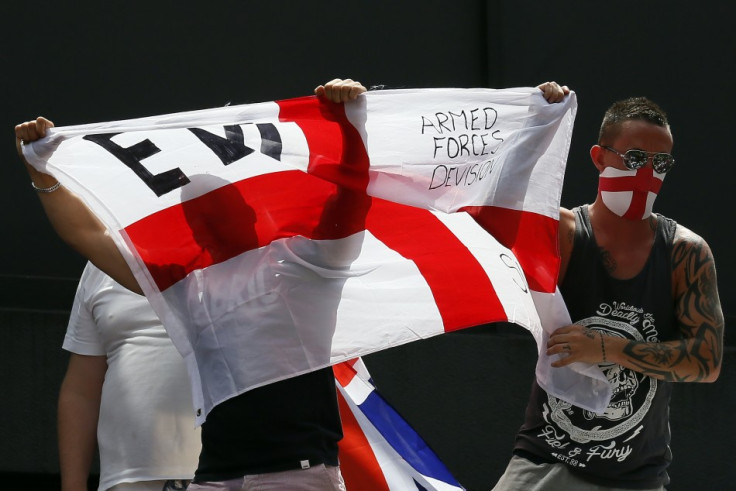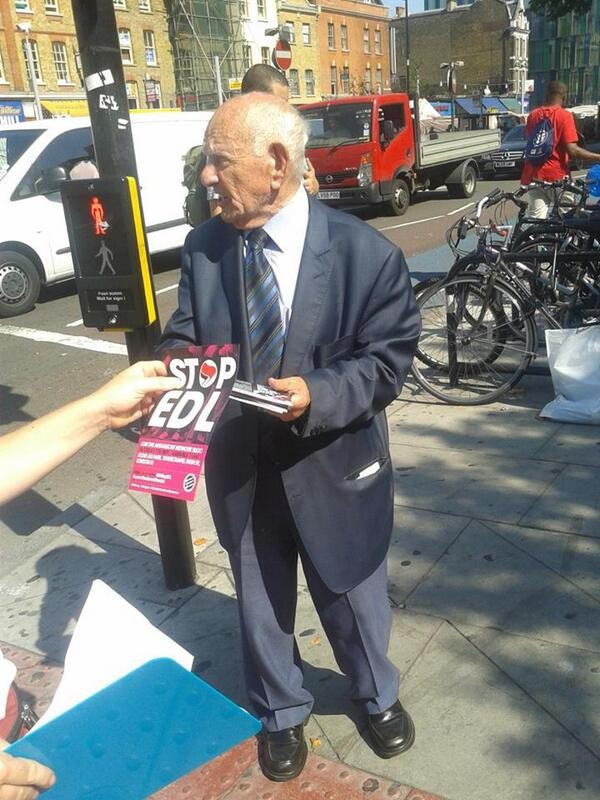EDL Tower Hamlets March to Face 'Formidable' Opposition

Hundreds of far-right EDL demonstrators are expected to gather in London, as police seeking to prevent a second Battle of Cable Street, imposed a ban preventing protesters marching into the heart of the East End.
The EDL originally intended to follow a route into Whitechapel in Tower Hamlets, where Jewish East Enders, local workers and Communists confronted Walter Mosely's blackshirts in running street battles in 1936, and which is now home to a large Muslim population.
But police have imposed a ban on demonstrators entering the borough, and EDL supporters will be compelled to stop at Aldgate after marching over Tower Bridge and up The Minories.
Chief Supt Jim Read, who is in command of policing tomorrow's protest said the conditions were imposed "to prevent serious disorder, damage to property, disruption to community life and intimidation."
"We must listen to our communities and what concerns them the most," said Chief Supt Read.
"But we must also uphold the right to protest - a fundamental part of our society."
EDL protesters will be also barred from entering Altab Ali Park, which was named in memory of a 25-year-old Bangladeshi clothing worker who was murdered by white racists as he walked home from work.
Anti-fascists and members of local communities will gather in the park for a counter demonstration, predicted to be sizeable.
"The EDL is also facing a formidable and united community in the East End. In fact, the EDL threat has united Tower Hamlets' community as a fortress against far right fascism, continuing a long tradition of resistance to fascism that harks back to the days of Cable Street," said Dr Muhammed Abdul Bari, founding member of the East London Communities Organisation and Chairman of the East London Mosque Trust.
The counter-demonstration is supported by several trade unions.
Len McCluskey, general secretary of Unite, told the Guardian: "The EDL has nothing to offer the people of Tower Hamlets but hatred and fear. Not the jobs, hope or strong communities, the very things I saw people striving for when I visited the area and the east London and Brick Lane mosques earlier this summer."
Many believe the police restrictions do not go far enough, and a petition signed by 10,000 people was submitted to the Home Secretary requesting the government to ban the EDL march from taking place at all. Two local MPs, Rushanara Ali and Jim Fitzpatrick, have written to police minister Damian Green supporting calls for aban.
Luftur Rahman, the mayor of Tower Hamlets said: "Allowing it to go ahead risks community cohesion, could result in disorder, threaten public safety and risks the threat of violence to property, police personnel and the local community."
EDL organisers claim members want to march through the East end to peacefully protest against the dangers of Islamic extremism.
Last month, the group's founders Stephen Yaxley-Lennon, also known as Tommy Robinson, and Kevin Carroll were charged with obstructing police officers when they allegedly attempting to defy a police ban on them marching past the East London Mosque to the site in Woolwich where Drummer Lee Rigby was murdered in May, allegedly by Islamic extremists.
Immediately after the murder of Rigby, hundreds of EDL supporters gathered at the site, and some clashed with police.
In June, a mosque and community centre in Muswell Hill, north London, were burnt to the ground, and the letters EDL scrawled on a wall.

© Copyright IBTimes 2025. All rights reserved.




















